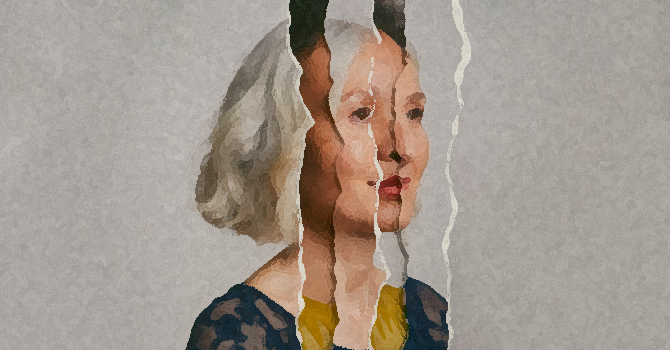Why do women spend more money on beauty products and clothing than men? Why do people in hotter climates buy spicier foods? And why do parents spend more resources on one child than another?
Imagine that you knew why people buy, why they make the purchasing decisions they do, and how to predict consumer behavior. How effective would you be at creating the best products and communicating the right messages?
Like any business owner, marketer, or just someone who’s responsible for helping a business make more money, you have likely wondered why people make the buying decisions they do.

Fundamental Human Desires
It might sound like my questions have complex and complicated answers that can only be discovered through a large consumer behavior study. But the reality is, the answer is identical to why people buy anything regardless of product category, price, and features.
So, if you want to make sense of consumer behavior, then start with the same question Charles Darwin used to formulate the theory of natural selection—the framework that helps us understand the behaviors of all living organisms, including humans:
Which fundamental human desire does the behavior seek to satisfy?
Darwin correctly believed that all behavior seeks to satisfy some fundamental and evolutionary human desire. We know what those human desires are because they drive every single action we take.
They are: obtaining more food, increasing resources, making more money, avoiding disease, staving off danger, securing a shelter, making friends, attaining social status, attracting mates, holding on to a mate, and caring for family.

Answering the Deeper Question
Consider this simple example. Let’s say you have a friend who just bought a bag of chocolate chip cookies, and you want to know the reason behind her purchase. So, you ask her: “What made you want to buy that?” She might tell you that she has a sweet tooth, or she might simply say “It looked tasty.”
But thinking something is tasty is the shallow, surface level reason. It’s depthless because it tells you what she thinks about the cookie, not why she decided to buy that cookie at that moment. But answering the deeper question of why chocolate chip cookies taste good to humans in the first place requires understanding human desires.
Going back eons, our ancestors developed psychological mechanisms that attracted them to the sight, smell, and taste of foods rich in sugars and fats to survive in environments where calories were scarce. So, whereas the simple reason why your friend bought a bag of chocolate chip cookies may be because she thinks they taste good, the fundamental human desire she was trying to satisfy, in fact, was a desire for sugary and fatty foods that are vital for her survival.

There Are No Rational Reasons for Buying a Porsche
I recently bought a Porsche Panamera. It’s my dream car. It has a powerful engine with two turbos for top speed and acceleration and an electric battery that delivers instant torque. I love how it looks elegant and menacing at the same time. The handling is also better than anything I’ve ever driven. I remember driving it home for the first time. I remember laughing out loud as I took a fast corner coming off the highway and the feeling of pure joy. But I’d be lying if I said those are the real reasons why I bought that car.
To be brutally honest, the human desire I was seeking to satisfy was the desire to attain more social status, signal success to others, to impress my friends, and to reassure my clients that they made a good decision by choosing to do business with me. I’m not proud of myself for that. I guess what I’m trying to say is that… I’m human.
In summary, all purchases seek to satisfy a fundamental human behavior. And although I recognize the underlying reasoning behind my purchases, I am still powerless to it.

Women Shop More, Men Spend More
Now, going back to the questions that started all of this.
Why do women spend more money on beauty products and clothing than men? Well, there are several obvious reasons. When asked, women report that it makes them feel good, it provides them with a sense of identity, and it enhances their self-esteem. But you now know that how someone feels about a product isn’t the reason they buy. There’s a fundamental human desire they’re seeking to satisfy.
That fundamental human desire underpinning why women spend more on beauty products is the desire to attract a mate. But wait, don’t men want to attract mates just as much as women? If that’s true, then how come women spend more on beauty than men? The answer is because women are choosier when it comes to selecting a mate than men.
Research also shows that women in populated cities outspend women elsewhere. When women perceive that there are many other attractive women in their local environment, they interpret that to mean there is a lot more competition for mates. And more competition leads to more spending.
Before we move on, I want to address a misconception. Many marketing agencies wrongly believe that women buy more luxury products than men. When in reality, men outspend women on luxury goods!
Past research found that men buy luxury products to attract women because it displays their wealth and ability to obtain resources and invest in a relationship. And women place value in those things.
Whereas women don’t buy luxury products to attract mates. Women often use luxury products to send signals to other women—telling them to “back off.” They treat luxury products as something to help them keep their mate.

Explaining Bizarre Behavior
Businesses tend to waste enormous sums of money on marketing because they don’t understand why people buy.
Fundamental human desires influence consumer behavior in powerful ways. Understanding which human desire influences a purchasing decision provides a unique window into understanding consumer behavior.
It allows us to explain behaviors such as why people prefer spicier foods in hotter climates (to increase survival rates because hot weather acts as a natural appetite suppressant and spicy foods act as an appetite stimulant).
Understanding human desires help us answer why parents spend more money on certain children than others (spending on children depends on that child’s ability to convert parental resources into reproductive success).
And it explains why people help strangers and non-family members (to build a good reputation and get rewards from those they help later on).

Get to Know You Customers
If you were to paint a story of your journey as a consumer on a timeline, it would begin with dinner and a movie. With some luck and effort, the decision to purchase an engagement ring would follow. Before you know it, you are buying your first home, deciding on vacation destinations, saving for your children’s college tuition, investing for retirement, and ultimately, your journey as a consumer may end with filling out a will.
At every stage of life, our purchasing decisions are tied to a fundamental, yet powerful, human desire. Understanding those desires allow us to predict what people will buy, when they will buy, and why they will buy.
If your business knew the what, when, and why about your customers, wouldn’t you get better results from all your marketing efforts? You would. And you would join the hall of fame of the world’s top brands-brands that understand people, emotions, and fundamental human desires.

0 Comments